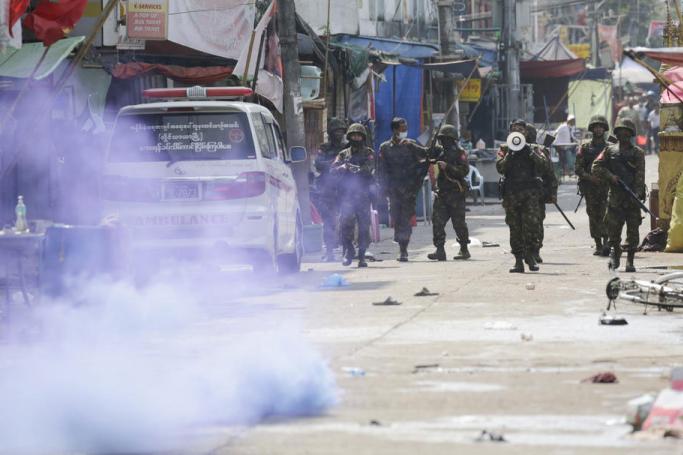A global coalition of 75 civil society organisations, coordinated by NGO Forum on ADB demanded the Asian Development Bank ‘assess its lending relationship with Myanmar and assure that it’s approved loans do not legitimize military rule and authoritarianism.’ In response to pressure, and review of the program, the Asian Development Bank (ADB) suspended funding for government projects in Myanmar last week.
In a statement released 10 March, the ADB said it ‘has placed a temporary hold on sovereign project disbursements and new contracts in Myanmar effective 1 February 2021.’
The Bank expressed ‘deep concern’ for how events were unfolding in Myanmar, ‘especially for the loss of life during civil protests', saying the decision was made in line with internal guidelines. This brings the ADB’s position closer to the World Bank Group which temporarily halted funds for its operations in Myanmar on 19 February.
Headquartered in Manila and currently with 68 state members, the ADB is a regional multi-national bank established to promote social and economic development in Asia. Myanmar joined the bank in 1973.
The ADB suspension is expected to have a serious impact on the military junta. Total financial assistance to the country across sovereign and non-sovereign operations- in terms of lending obligations, disbursements, pending grants and load- amounts to an estimated US 11 billion. Currently the ADB is providing USD 3698.89 million for 35 active development projects. Project Data Sheets (PDS) show that USD 527.27 million was transferred to Myanmar before the 1 February coup, the remaining USD 3,171.62 million disbursement is now suspended.
Myanmar is reliant on the ADB for significant funding of infrastructure, but can no longer expect the transfer of an anticipated $3,171.62 million worth of ADB loans. Funds were intended to compete important national development projects, the military’s history of appropriating money to violently sustain its control of the country means the Bank cannot trust that the funds will be used as agreed. The bank assessed that it was highly likely the junta would not have sufficient funds to run the country day to day without drawing on budgetary support from ADB money.
Following the 1988 coup, the ABD ceased direct assistance but maintained engagement through Myanmar’s participation in the Greater Mekong Subregion (GMS) Economic Cooperation Program, and damage and needs assessment work led by the United Nations following Cyclone Nargis 2008.
Reengagement with Myanmar began in 2012 focussing on infrastructure for transport, energy, and urban development; education and training; and rural development.












